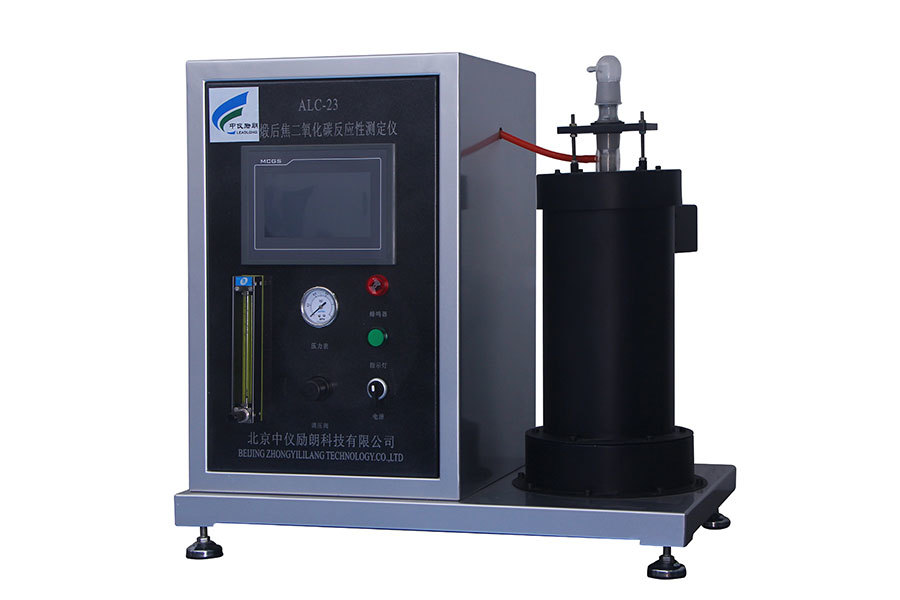Why Quality Matters: A Deep Dive into Petroleum Coke Testing Instruments
May 14,2025

Introduction to Petroleum Coke and Its Importance
Petroleum coke, often referred to as petcoke, is a high-carbon solid derived from oil refining. It serves as a crucial ingredient in various industrial processes, particularly in the production of aluminum and steel. Understanding the quality and specifications of petcoke is vital for industries that rely on its performance. Consequently, the demand for precise and reliable petroleum coke testing instruments is on the rise. This article explores the significance of quality in testing equipment that ensures accurate results and compliance with industry standards.
Understanding Petroleum Coke Testing Instruments
Petroleum Coke Quality Testers are specialized devices designed to measure and analyze the physical and chemical properties of petroleum coke. These instruments play a pivotal role in determining the quality of the material, influencing its usability in various applications. From measuring sulfur content to assessing its calorific value, the accuracy of these instruments can directly impact the efficiency and safety of industrial operations.
Key Parameters Tested in Petroleum Coke
When it comes to evaluating petroleum coke, several key parameters are crucial:
1. Sulfur Content
Sulfur levels in petcoke can affect combustion efficiency and emissions. Testing for sulfur content is essential for regulatory compliance and environmental protection.
2. Ash Content
The ash content impacts the quality of the coke, influencing its performance in metallurgical processes. Accurate measurements ensure that the coke meets the necessary specifications.
3. Volatile Matter
This parameter indicates the amount of material that can be vaporized during heating. Understanding volatile matter helps in assessing the quality of petcoke for specific applications.
4. Calorific Value
The calorific value reveals the energy potential of the petroleum coke, making it a critical factor for industries relying on its efficiency as a fuel source.
5. Particle Size Distribution
The size of the coke particles can affect its handling and combustion characteristics. Proper testing ensures optimal performance in industrial applications.
Types of Petroleum Coke Testing Instruments
Various instruments are available for testing petroleum coke, each designed to measure specific parameters:
1. Elemental Analyzers
These instruments analyze the elemental composition of petroleum coke, providing insights into its carbon, hydrogen, sulfur, and ash content.
2. Calorimeters
Calorimeters measure the heat of combustion, determining the calorific value of petcoke. This data is vital for evaluating its efficiency as a fuel source.
3. Sieve Shakers
Used for particle size analysis, sieve shakers help determine the distribution of particle sizes within a sample of petcoke, ensuring proper handling and processing.
4. Microscopy Equipment
Advanced microscopy techniques allow for detailed examinations of the petcoke's physical properties, providing insights into its structure and quality.
5. Moisture Analyzers
These devices assess moisture content, which can influence the weight and quality of petcoke, impacting its market value.
The Importance of Quality in Testing Instruments
The quality of testing instruments is vital for several reasons:
Accuracy and Reliability
High-quality instruments provide accurate and consistent results, ensuring that the data used for decision-making is trustworthy. Inaccurate testing can lead to costly mistakes, including non-compliance with regulations and subpar product performance.
Compliance with Industry Standards
Industries that rely on petroleum coke must adhere to strict regulatory standards. Quality testing instruments help ensure compliance, mitigating the risk of legal penalties and reputational damage.
Long-Term Performance
Investing in quality testing instruments can enhance their longevity and reduce maintenance costs. Reliable equipment minimizes downtime and maximizes productivity, contributing to a more efficient operation.
Quality Control Methods for Testing Instruments
To maintain the quality of petroleum coke testing instruments, several quality control methods can be implemented:
1. Regular Calibration
Frequent calibration is essential to ensure that testing instruments provide accurate results. Calibration should be conducted using certified reference materials to maintain consistency.
2. Routine Maintenance
Establishing a routine maintenance schedule helps in identifying potential issues before they escalate. Regular checks can prolong the lifespan of equipment and ensure optimal performance.
3. Training Personnel
Proper training for personnel operating testing instruments is crucial. Well-trained staff can minimize operational errors and maximize the efficiency of testing procedures.
4. Implementing Standard Operating Procedures (SOPs)
SOPs provide a structured approach to testing, ensuring that all procedures are followed consistently. This helps maintain quality control across different operators and shifts.
5. Documentation and Record Keeping
Maintaining detailed records of testing results, calibrations, and maintenance activities is vital for tracking performance over time. This documentation can be invaluable for audits and quality assurance processes.
Best Practices for Maintaining Testing Equipment
Maintaining testing equipment is crucial for ensuring accurate and reliable results. Here are some best practices:
1. Cleanliness and Organization
Keeping testing environments clean and organized helps prevent contamination and operational errors. Regular cleaning routines and proper storage of instruments enhance their longevity.
2. Environmental Controls
Controlling environmental factors such as temperature and humidity can impact the performance of testing instruments. Ensuring that equipment is stored and operated within specified conditions is essential for accurate results.
3. Using Quality Consumables
Utilizing high-quality consumables, such as reagents and standards, can significantly affect testing outcomes. Always opt for certified materials to ensure the integrity of testing processes.
4. Keeping Up with Technological Advances
The field of petroleum coke testing is continually evolving. Staying informed about the latest technologies and advancements can help improve the quality and efficiency of testing instruments.
5. Engaging Professional Services
For complex maintenance issues or calibration needs, engaging professional services ensures that testing equipment is handled by experts. This approach can save time and enhance the reliability of test results.
Conclusion
Quality in petroleum coke testing instruments is paramount for ensuring accurate results and compliance with industry standards. By understanding the significance of various testing parameters and investing in high-quality equipment, industries can enhance their operational efficiency and product quality. Implementing robust quality control methods and maintenance practices ensures that testing instruments remain reliable and effective, ultimately contributing to the success of operations that rely on petroleum coke.
Contact Us








